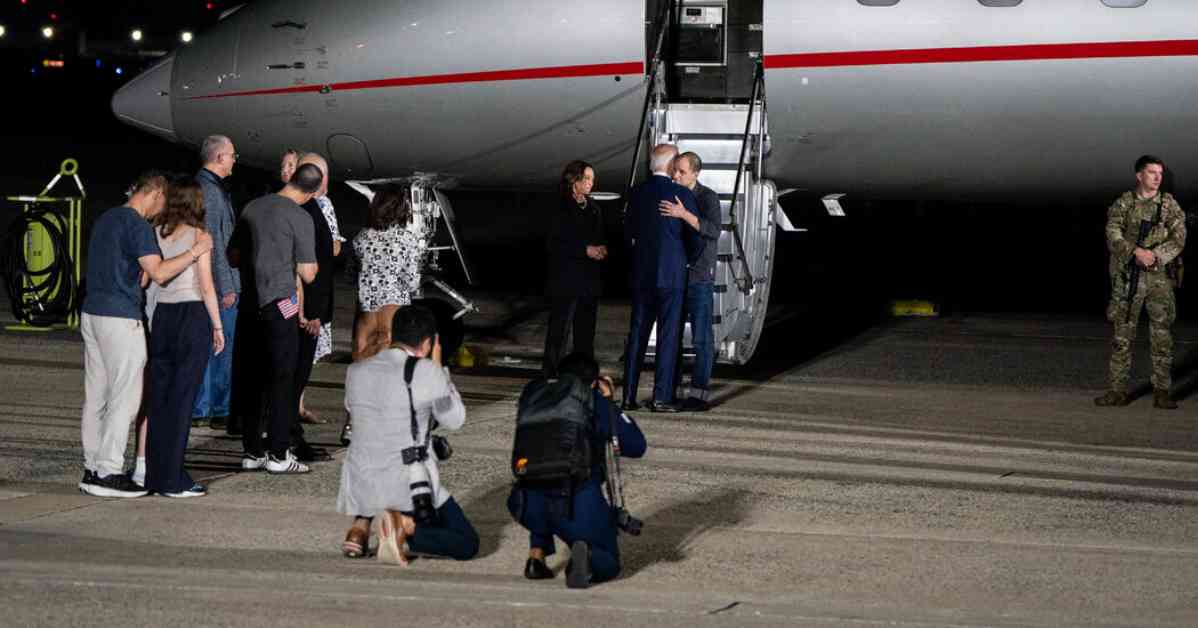President Biden and Vice President Kamala Harris were seen welcoming prisoners released from Russia at Joint Base Andrews. The release of these Americans who were unjustly imprisoned abroad has sparked concerns about a rise in hostage diplomacy. It seems that U.S. adversaries have realized that they can arrest innocent Americans and exchange them for convicted criminals, spies, and even murderers.
Experts, including current and former U.S. officials, are troubled by this trend. They fear that leaders like President Vladimir V. Putin of Russia are taking advantage of America’s willingness to negotiate for the return of its citizens. The recent deal involving 24 prisoners and seven nations included the return of a Russian assassin who was serving a life sentence in Germany for a high-profile murder in a Berlin park.
Adam Hickey, a former deputy assistant attorney general in the national security division of the U.S. Justice Department, expressed his concerns about the incentives that these hostage trades create. He believes that this practice may lead to an escalation in the abduction of Americans by foreign governments. However, finding practical alternatives to these prisoner swaps is proving to be a challenge.
Former President Donald J. Trump criticized President Biden for setting a “bad precedent” with the deal, suggesting that he paid too high a price to Mr. Putin. Despite his criticism, Mr. Trump did not provide any evidence that he could have negotiated a better deal. It is worth noting that during his presidency, Mr. Trump also engaged in prisoner exchanges with U.S. adversaries, such as Iran and the Afghan Taliban, on multiple occasions.
In response to the recent hostage swap, Speaker Mike Johnson and Senate minority leader Mitch McConnell called for action to deter further hostage-taking by hostile nations like Russia and Iran. However, they did not specify what measures should be taken to address this issue.
The concern about the rise of hostage diplomacy is real, and it raises important questions about how the United States should navigate these challenging situations in the future. As the dynamics of international relations continue to evolve, finding effective strategies to protect American citizens abroad will be crucial. It remains to be seen how the U.S. government will address these growing concerns and prevent the exploitation of innocent individuals for political gain.


















